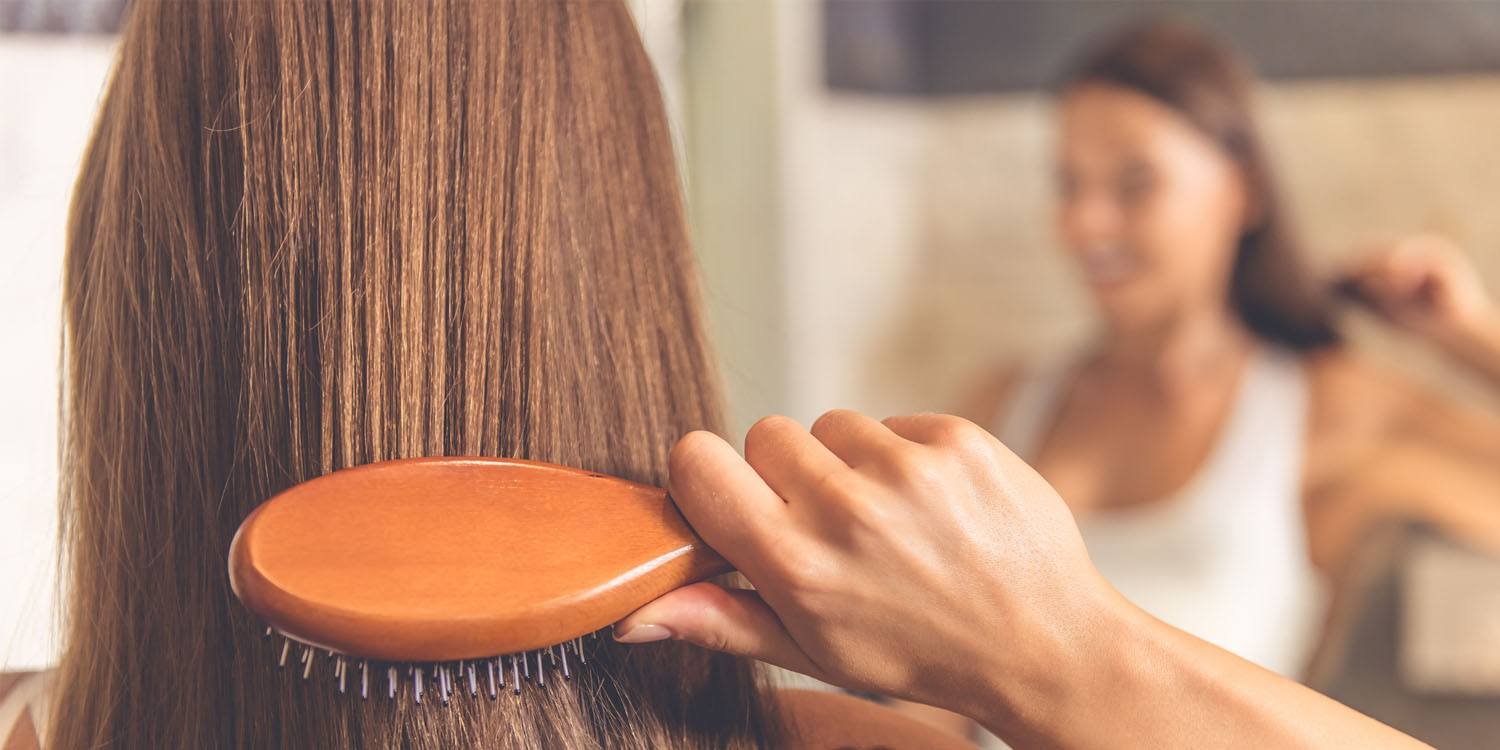Itchy Scalp? Here's Why And 7 Things You Can Do About It

Bob or lob? Boho braids or an elegant French twist? Sleek strands or beach waves? Candy pink or mint green? It’s fun to consider all of your hairstyle and hair color options, but if your scalp is itchy and flaky, there isn’t a cute hairstyle in the world that will make you feel more comfortable. So before you snip or twirl or highlight your hair, it’s best to hit pause and focus on the root of the matter—namely, your itchy scalp.
There are three basic reasons why you may constantly feel like you need to scratch your head.
1. It’s Medical
This is the most serious of the three categories—although certainly not life threatening. You may have an autoimmune disease like psoriasis that causes raised, reddish, scalp patches on your scalp. If this is the case, a doctor will recommend an over-the-counter shampoo containing coal tar or salicylic acid, or a stronger, prescription shampoo or topical treatment. It could be a fungal infection, which, when occurring on the scalp is known as tinea capitis or ringworm. Tinea capitis is comparable to athlete’s foot, and a doctor will treat it with an oral, anti-fungal medication.
You may also have an allergy—to a particular food or hair product. Try swapping out your shampoo and conditioner for formulas that are paraben free, silicone free, sulfate free, and has no artificial colorants —all of which have the potential of causing adverse reactions like irritated scalps. If you color your hair, your hair color is another area to explore. Talk to your hair stylist about low-ammonia hair color options, which may be gentler for sensitive scalps.
2. It’s Dandruff
There’s a big difference between dandruff and ordinary dry scalp. Dandruff is caused when your body has an inflammatory response to an overabundance of yeast production on the scalp. Dandruff flakes will stick to the scalp and to your hair brush more readily than the powdery white flakes associated with dry scalp. The best treatment for a mild case of dandruff is a shampoo with anti-bacterial and calming ingredients like pyrithione zinc and mint leaf.
3. It’s Dehydration
If you’ve ruled out all of the above, you likely falls into this broad category. Bottom line? Your scalp is just plain dry. You see your scalp is skin, and like the skin elsewhere on your body, it requires your body’s natural oils (known as sebum) to keep it supple and hydrated. If that sebum production slows, your scalp will feel dry, tight and itchy.
Here are some of the things that can cause your head to become dehydrated:
-
External conditions like cold, dry weather or hot, dry forced indoor heat in the winter.
-
Internal dehydration from your diet or lifestyle.
-
A build-up of styling products.
-
Overindulging in hats or wigs that prevent oxygen from reaching your scalp.
Here’s How To Combat Dry Scalp!
Ready to fight the moisture zap that can really escalate at this time of year? Here are seven strategies for fighting scalp dryness. When you do, there’s a bonus—you’ll likely discover that your hair becomes bouncier, shinier and easier to manage, too!
1. Drink More Water
It sounds simple, but the quickest way to hydrate your skin and scalp is to hydrate your body. That means drinking loads of H2O—experts recommend at least eight 8 ounce glasses a day. And sorry—sodas and alcoholic beverages don’t count because they can actually cause rather than alleviate dehydration.
2. Eat Your EFAs
Essential fatty acids--found in healthy foods like walnuts, salmon, avocados and flaxseed--are ideal ingredients to consume for hydrating from the inside out.
3. Brush, Brush, Brush
Stimulating your scalp with a soft boar bristle hair brush will lift away dry skin cells and other debris. At the same time, brushing helps distribute your scalp’s natural oils. Try brushing daily if you aren’t already doing so, and definitely give your scalp a good going over with a brush prior to shampooing to ready your scalp for cleansing.
4. Massage Your Scalp.
For your scalp, just like for the rest of your body, good circulation is everything. It speeds up blood flow, which transports nutrients where they belong, and waste where it doesn’t. Whether self-administered or done by a partner or friend, treat yourself to regular, circulation-boosting scalp massages. Anchor your thumbs on the sides of your head, then move your fingertips in small, circular motions. Consider dipping your fingers into a dish of warmed-up hair treatment oil containing natural ingredients like pure olive oil, sunflower oil, borage oil, rockrose essential oil, lemon balm essential oil or fennel essential oil for additional moisturizing.
5. Exfoliate Your Scalp
You religiously exfoliate your skin with your favorite scrub or mask to keep it smooth and glowing. Did you know that exfoliating also does wonders for a dry scalp? You can opt for an actual scrub, or a hair mask formula containing fruit enzymes, sugar or salicylic acid, which won’t require tugging or rubbing.
6. Treat Your Scalp
Not to belabor the skin care correlation, but the same concept of using a face mask to infuse your complexion with moisture and nourishment works for your scalp. Look for hair mask treatments containing hydrating and reparative natural origin ingredients like coconut oil, shea butter or honeycomb. Work the mask into your scalp once or twice a week, cover your head with a plastic cap to aid penetration and relax for 10 or 15 minutes before rinsing. Not only will your scalp feel better, your newly hydrated hair will look amazing!
7. Strip it Down
Build-up of styling products like hairspray, volumizers or gels can cause your scalp to suffocate if not removed completely. To whisk away gunk and debris, try washing your hair with a once-a-week clarifying shampoo. The best of these deep-cleansing shampoos contain natural ingredients like lemongrass to give your hair a gentle, yet thorough reset and leave hair and scalp purified and fresh.
Spring is around the corner, and in warmer weather, dry scalp conditions tend to abate. In the meantime, remember to treat your scalp like you would the skin anywhere else on your body and you’ll never experience that head-scratching dryness again!






